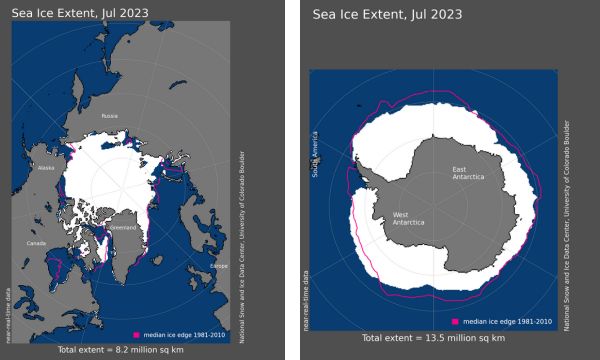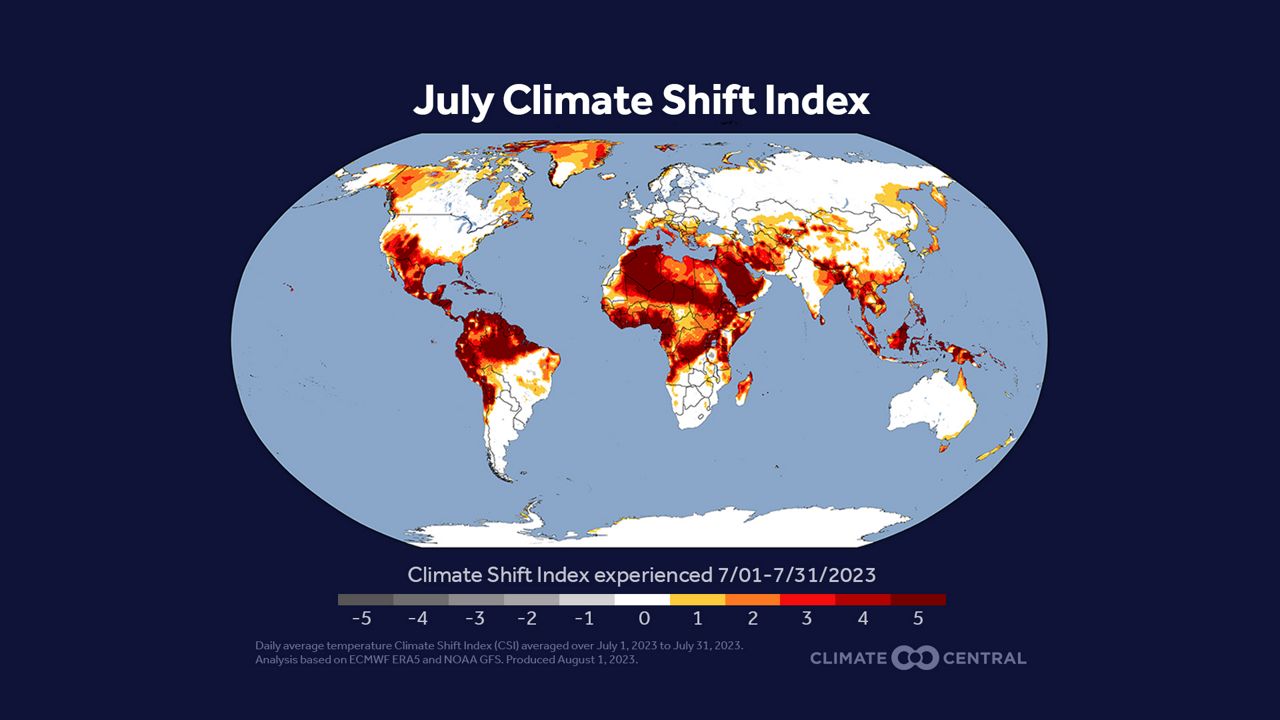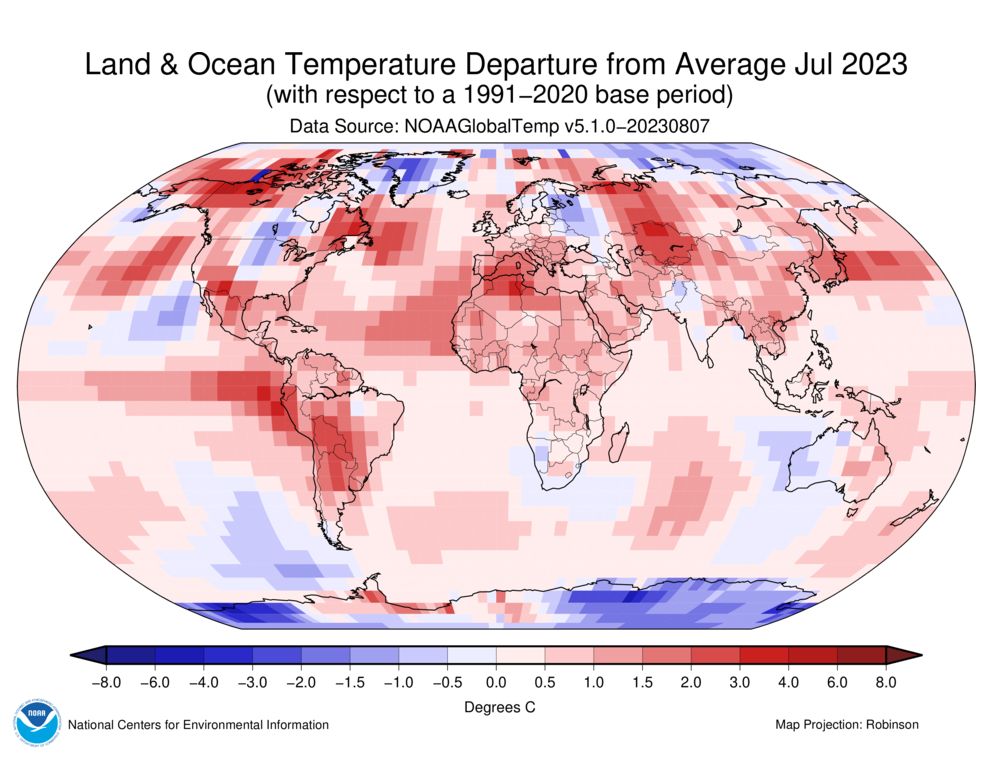Last month was the hottest July on record, and was likely the warmest month overall, according to NOAA scientists. The agency’s records of global temperatures go back 174 years.
The average global temperature in July 2023 was just over two degrees above the 20th-century average, and about a third of a degree warmer than the previous July record set in 2021. Asia, Africa and South America had their warmest July on record, according to NOAA.
Temperature anomalies for July 2023. (NOAA)
El Niño, a pattern of warm water temperatures in the Pacific Ocean off the coast of South America, tends to warm global temperatures. However, there is a lag between its onset and its largest effects and it probably had little effect on the July record, according to NOAA’s Chief Scientist Dr. Sarah Kapnick.
Dr. Gavin Schmidt, Director of NASA’s Goddard Institute for Space Studies, adds that he “anticipate(s) 2024 will be warmer still” because of the ongoing El Niño.
Oceans are feeling the heat, too. This was the fourth straight month of record-high global ocean surface temperatures as marine heat waves continue. Sea ice extent was the lowest on record for the month of July.

Sea ice extent in July 2023 compared to the median, shown as a pink line. (NSIDC and NOAA NCEI)
In the U.S., the heat was especially noteworthy in the Southwest. Phoenix’s average July temperature was a scorching 102.8 degrees, the hottest month on record not just there but for any U.S. city. That city had 31 straight days of highs above 110 degrees, shattering the old record of 18 days.
The Lower 48’s average temperature was just over two degrees above average, its 11th warmest July on record.
The National Centers for Environmental Information says this year will almost certainly be among the five warmest on record and even has almost a 50/50 chance of becoming the warmest year ever recorded.
Human fingerprints
Dr. Kapnick noted that July’s exceptional global warmth is above and beyond contributions from natural sources.
Climate Central’s “Climate Shift Index,” which works to give a sense of how more or less likely temperatures are because of human-related climate change, says that last month was especially noteworthy. They report that about half of the global population endured 10+ days of heat that was at least three times more likely because of human-related climate change.

(Climate Central)
Dr. Schmidt says climate change is “juicing heat waves, leading to more intense rainfall… and is a contributing factor to the growth of wildfires.” He adds that many factors leading to disasters are local ones, but the long-term trends are clear and are a “threat multiplier.”
Our team of meteorologists dives deep into the science of weather and breaks down timely weather data and information. To view more weather and climate stories, check out our weather blogs section.

